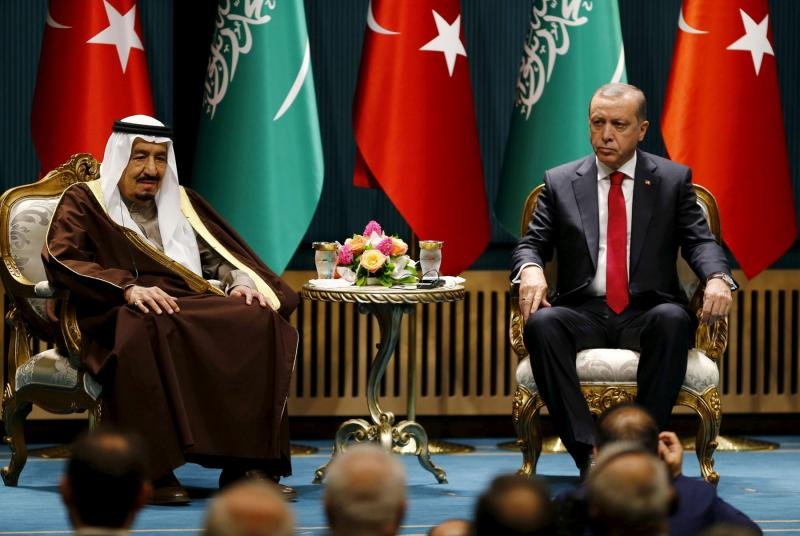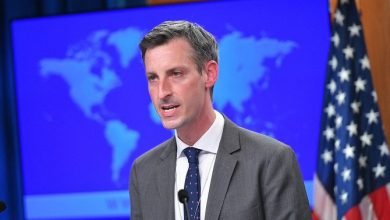In bid to break isolation, Turkey reaches out to Saudi Arabia

SMA NEWS – ANKARA
Turkish President Tayyip Erdogan and Saudi Arabia’s King Salman bin Abdulaziz Al Saud discussed bilateral ties in a call on Tuesday, the Turkish presidency said, the second such conversation between the two leaders in less than a month.
“During the call, relations between the two countries were discussed. The Turkish President also congratulated the Custodian of the Two Holy Mosques on the occasion of the blessed Eid al-Fitr,” the Saudi news agency (SPA) reported.
Turkey is seeking to improve ties with the Gulf Arab state after they were thrown into crisis by the 2018 murder in Istanbul of journalist Jamal Khashoggi and Ankara’s attempts at exploiting the case politically.
Political analysts, however, say Ankara is following a set of contradictory approaches in its relationship with Riyadh. While displaying an intent to surmount the legacy of past problems, Ankara is still trying to impose its regional policies.
Turkey has given its support for Gulf reconciliation and which it claimed would provide it with an opportunity to return to the region through the front door. But it has not taken any steps to show good faith, whether at the political level nor in the media, nor especially on the ground through its network of relations in Yemen or the Horn of Africa.
Turkish support for groups and militias linked to the Muslim Brotherhood is one of the factors that have hindered the implementation of the Riyadh Agreement. This support has not eased tensions within Yemen’s “legitimacy” camp and flies in the face of the Saudi plan to speed a Yemeni political settlement that ensures Riyadh’s national security and curtails Iranian influence in the strategic region.
According to media reports, Turkey supports the continuation of chaos in Yemen until it secures a strategic foothold for itself in the region. It is also said to be behind the Brotherhood’s control of the oil-rich Shabwa governorate, which overlooks the Arabian Sea coast. It is also reported to have helped build the Qena Port project in Yemen, which will give it greater freedom of movement to carry out its plans in that country and the region.
Ankara has also enhanced its intelligence presence in the region by sending security officers under various covers, including humanitarian missions, such as working for the Turkish Humanitarian Relief Foundation.
The matter does not stop at Yemen nor at obstructing a political settlement there that would enable Riyadh to exit with the least possible damage. Turkish activities blocking the interests of Saudi Arabia and other Gulf countries have become more obvious in the Horn of Africa, with a focus on securing positions in Somalia and Djibouti.
Last year, Saudi businessmen endorsed an unofficial boycott of Turkish goods in response to what they called hostility from Ankara, slashing the value of trade by 98%.
Erdogan’s spokesman Ibrahim Kalin said last month that Erdogan and King Salman had “a good call” in April and that the foreign ministers of the two countries had agreed to meet.
Turkish Foreign Minister Mevlut Cavusoglu had also said in March Saudi Arabia and Turkey had agreed to “continue dialogue” after a “fruitful” meeting last November with his Saudi counterpart Prince Faisal bin Farhan, according to state-owned Anadolu news agency.







